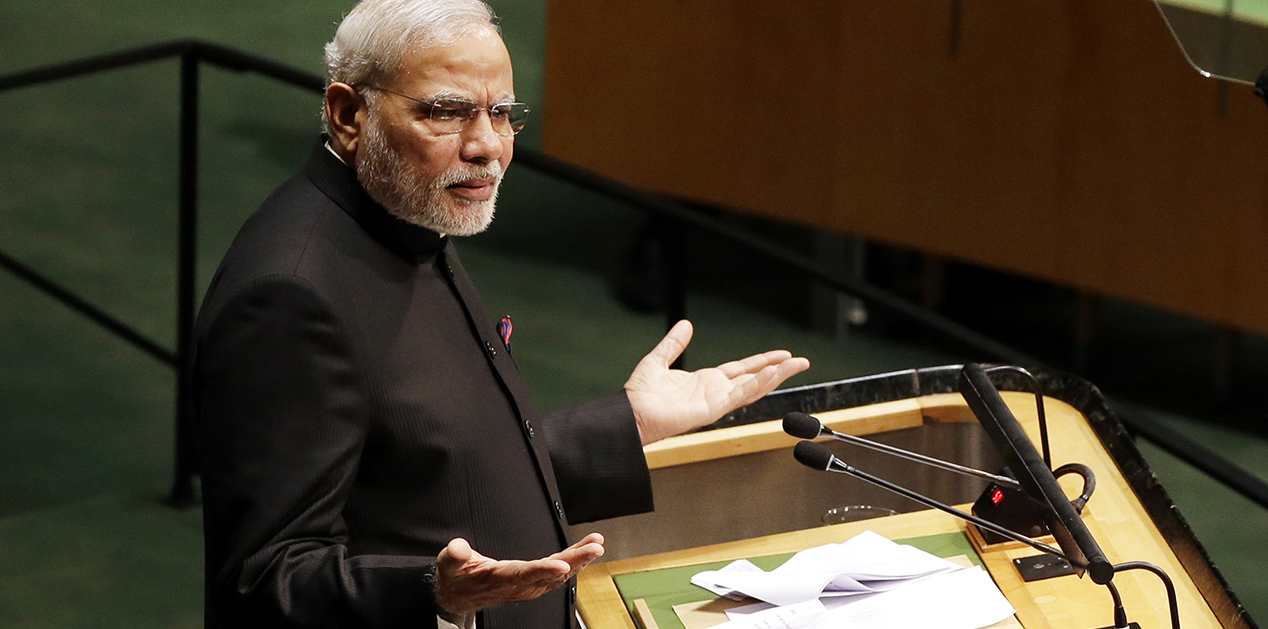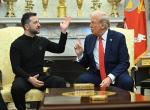Prime Minister Modi’s blistering attacks against Pakistan on its terrorist affiliations on the occasion of the BRICS and BIMSTEC summits have been viewed as excessive by some in India. The various points of criticism are that by focusing so much on Pakistan at these multilateral gatherings we narrowed our diplomatic canvas, allowing ourselves to be re-hyphenated with Pakistan, and in the process diminished our own rising international stature. India should not fall in the category of small countries who are obsessed with single issues in multilateral forums. Such forums, it is argued, are meant for exploring common ground and developing a consensus even when positions of the participants differ on issues. They are not supposed to be used as platforms for scoring diplomatic points against a non-participating third country. China, according to the critics, successfully blunted India’s offensive against Pakistan on terrorism by making sure that the BRICS summit document did not contain formulations that reflected India’s concerns about Pakistan. Instead, President Xi referred to root causes of terrorism in his statement, insinuating that India’s problem with terrorism had such causes that needed attention. This echoes Pakistan defence when accused of abetting terrorism in India that the root cause is the unsettled Kashmir issue. President Putin’s omission of any reference to terrorism in his statement at the summit has been seen as another diplomatic rebuff to India. India, the critics say, could not put its imprint on the BRICS summit document on the vital issue of terrorism, a prerogative that host countries are usually able to exercise. It is also argued that India is faced with major challenges such as China’s non-peaceful rise, the impact of the One Belt One Road project on our region, the strategic convergence between Russia and China, Russian overtures to Pakistan and so on, and therefore to view regional and global developments through the narrow prism of terrorism would be an error.
Pakistan has been using terrorism as an arm against India for almost two decades and a half. We have been half-hearted so far in treating this as a core issue in our relations with it. We have absorbed the terrorist blows, even the savagery of the Mumbai attacks, almost stoically and have preferred dialogue over confrontation. If our hope was that by keeping the doors of dialogue open India was providing space for Pakistan to progressively give up the use of terrorism as an instrument against India, especially in view of the rising domestic costs of nurturing such groups within the country, that hope has been belied. This exercise of testing the potential of a real change in Pakistani policy by avoiding escalation on our part has gone on for a couple of decades already. But this policy of restraint and avoiding any “excessive” focus on Pakistan’s complicity with terrorism has not borne real fruit as the most recent events demonstrate. It is therefore not clear why putting Pakistan robustly on the mat on this issue in multilateral forms such as BRICS and BIMSTEC should be seen as closing options for the future and therefore a mistake.
On the contrary, this would be the right moment to exert as much pressure on Pakistan as possible in view of favourable developments at the international level. US political circles are now openly referring to Pakistan’s duplicity on the issue of terrorism, to the point of a Congressional move- even if it is a token one and will not come to pass- to declare Pakistan a terrorist state. The US has administered some as yet minor raps on Pakistan’s knuckles on its failure to act against terrorist groups acting in Afghanistan from its soil. US drone attacks against terrorist targets in Pakistan, the killing of the Taliban leader Mullah Mansour on Pakistani soil and so on reveal to the world safe havens for terrorists in Pakistan. The Gulf countries have become much more receptive than before to our position on Pakistani sponsorship of terrorism against India and are increasingly willing to clamp down on such activity based on their soil and even hand over operatives to us. The rise of the Islamic State has focused international attention on the increasing gravity of the terrorist menace for all.
Why should raising the known links of Pakistan with terrorism internationally re-hyphenate us with that country? We neither provide safe havens to terrorists, nor have jihadi groups operating from our soil. We have no links with international terrorism. No India-based terrorist group figures on the UN Security Council List of designated international terrorists. Pakistan’s propaganda about our involvement in terrorist activity inside Pakistan, especially in Baluchistan, has got no encouragement. We should not expect open endorsement from other countries on our offensive against Pakistan on the terrorism issue. Pakistan is not an unimportant country; it is nuclear armed; it is a major Islamic state; it has been an ally of the West; it has exceptionally strong links with China; its role in Afghanistan cannot be ignored by those involved there; the increasing radicalisation of Pakistan creates its own pressure to continue engaging it to prevent the worse, and so on. But countries at large are not oblivious to the realities in Pakistan either. They have to strike a balance between their recognition of Pakistan as a significant country that has to be engaged and one that is the source of destabilising extremism and terrorism that requires containment. We should not be deterred from exposing Pakistan’s links with terrorism in multilateral forums only because we may not get external support to the degree we want. This is a difficult exercise that needs perseverance. Our core interests require that we make our position known forcefully.
Pakistan’s friends like China will try to protect it as they do, but they are paying a diplomatic price for this with regard to their relations with India. For China, it is not a win-win situation. President Xi’s concern about “root causes” can be easily thrown back at him with regard to Chinese political, religious and demographic policies in Uighur-populated East Turkestan and the suppression of people’s rights there that has generated resistance. If China prevented us from getting satisfaction on the terrorism issue at Goa during the BRICS summit, they also got no satisfaction on South China Sea and OBOR. In fact, at the next BRICS summit in China we should make sure that whatever text China proposes on the South China Sea is so phrased that it remains entirely generic, contains a reference to UNCLOS and in no way endorses China’s position, even indirectly. Similarly, we should insist on excluding any reference to OBOR.
Our emphasis on terrorism emanating from Pakistan send a powerful message to China that the situation for its ambitious projects in Pakistan can become less congenial if Pakistan continues to abet terrorist attacks in India and India is forced to retaliate. It send a signal to China to rein in Pakistan. It is a message also to Russia to be more careful about India’s sensitivities. More importantly, if tomorrow we have to react more forcefully to Pakistani provocations we would have already prepared the ground for it diplomatically by voicing our concerns loudly at the international level about Pakistani conduct. Our heightened offensive on the reality of Pakistan’s terrorist menace to us also serves as an advance warning to the international community about the dangers ahead if Pakistan does not control the jihadi groups targeting India and perseveres with its establishing policy of denial and projecting itself as a victim of terrorism as a cover to continue its proxy war against us.
The argument that our focus on terrorism is diverting attention from the challenges we face from China’s non-peaceful rise, OBOR, Russia-China strategic congruence and increased Russia-Pakistan links is not persuasive as this focus on Pakistan’s terrorist threat against us actually serves the purpose of addressing the outlined challenges frontally rather than making it easier for strategic projects to progress and converging strategic interests to solidify and work against us.
That we should focus elsewhere and not on terrorism is an argument that has to be tested against the importance other powers attach to the combat against terrorism even when it confronts them from afar and not from contiguous territory ruled by a self-seeking military establishment committed to permanent hostility towards us. The US declared a global war on terrorism, it destroyed Iraq using, amongst others, the excuse of Saddam Hussein’s terror links, it waged war against Afghanistan because of the 9/11 attacks, it accuses Iran of terrorism because of its links with Hezbollah and retains terrorism related sanctions on it even after the nuclear agreement, and has, moreover, targeted the Assad government for using terrorist methods to combat the opposition in Syria. With the rise of the Islamic State and its terrorist brutalities, a new battle against terrorism is now being fought in West Asia. Europe is facing an unprecedented wave of terrorist attacks by Islamist elements in its own midst, creating a mounting sense of insecurity in society and affecting domestic politics by strengthening right wing parties and fuelling anti-Islamic sentiments in the public. The liberal democracies of Europe are under a terror-induced stress. Sporadic terrorist attacks have occurred in the US, fuelling anti-Islamic sentiments there too, which have found expression also in electoral politics. Russia is extremely vigilant about the threat of terrorism to its security, to the point that it justifies its intervention in Syria as a defensive step to prevent the Islamic State and associated extremist groups gaining ground in the region and using it as a platform to threaten Russia proper. President Putin has observed that Syria is only a thousand kilometre from Southern Russia. Russia is also deeply concerned about the ingress of extremist elements from the Af-Pak region into Central Asia, and from there spilling over into Russia itself. The Chinese are faced with what they call Uighur terrorism in Eastern Turkestan from safe havens in Pakistan as well as from the territory controlled by the Islamic State. For their projects in “iron brother” Pakistan they still need security protection. Despite all this robustness in fighting terrorism, the countries in question have not obtained the success or the understanding they want at the international level. So, let us fight our public battle against Pakistan on terrorism without undue inhibition.
Finally, we did not reduce our participation in BRICS to the single issue of terrorism. The BRICS declaration at Goa had 109 paras compared- with only a couple devoted to terrorism as such- to less than 75 at Fortaleza and Ufa, and India had organised 112 events as part of BRICS activities, with 24 key initiatives, many more than in the case of Brazil and Russia. The BRICS summit that we chaired had thus a wider agenda than terrorism, for us and others.
Published Date: 28th October 2016, Image Source: http://www.ndtv.com










Post new comment